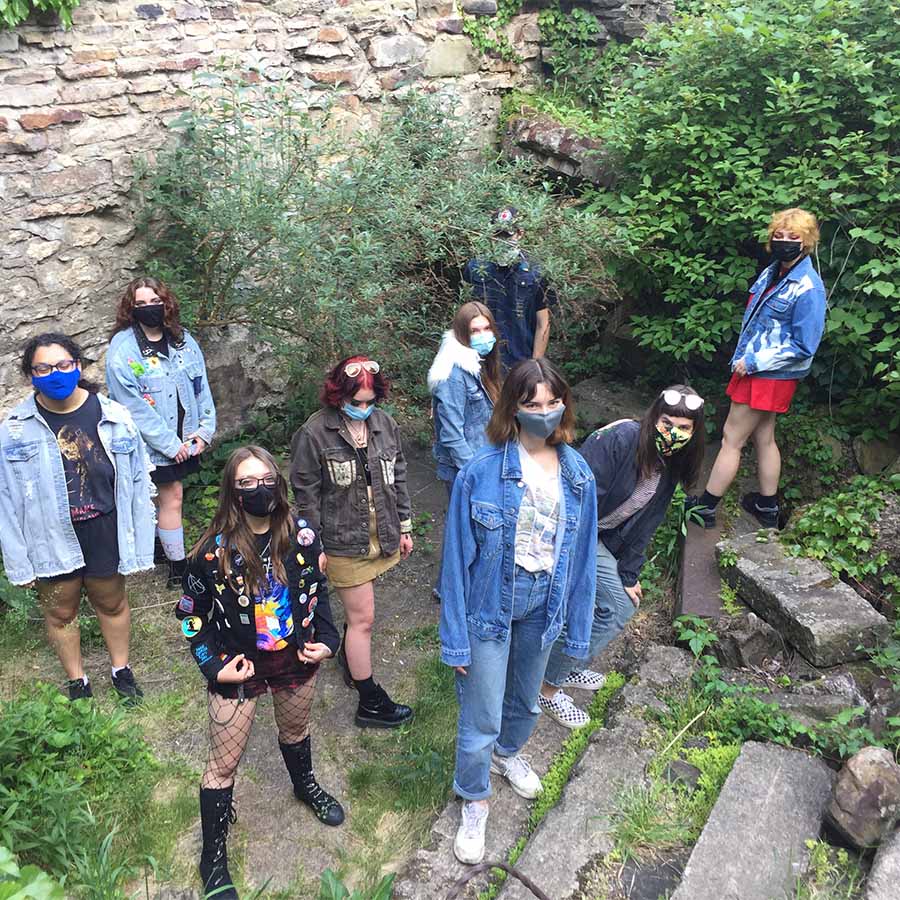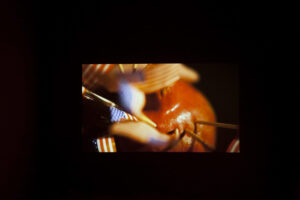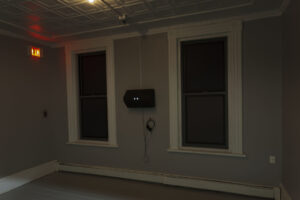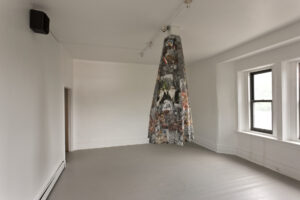This play is a reflection on the (im)possibility of accepting diversity and the other. The fragmented body of the neoplasm—the fruit of unstable conditions—overcomes barriers, loves and denies itself and others, wanders around, forgetting its profession. It frequently and with pleasure divides, goes through dangerous palpation, questions the possibility of contact with the experience of the other. Poorly brought up but very successful, it invites us to a trans-species transition.
Lorem ipsum dolor sit amet, consectetur adipiscing elit. Fusce at elit quis felis ullamcorper vehicula non in est. Maecenas finibus pharetra justo et faucibus. Nulla eu tortor vel ex volutpat efficitur. Vivamus placerat turpis in aliquet venenatis. Quisque ac lacinia mauris. Nam quis lobortis elit. Vestibulum sagittis nisi sit amet euismod hendrerit. Mauris non sodales odio. Donec efficitur molestie quam, sed lobortis massa vestibulum ut.
Nunc at arcu sodales nisi porta euismod non vel neque. Phasellus at lobortis ante, in suscipit justo. Proin non purus vitae nisi molestie consectetur. Vestibulum volutpat lobortis interdum. Vestibulum pretium ligula lorem, egestas ultricies lectus ultricies ac. Curabitur venenatis vulputate dolor.
Curated by Tavia La Follette
Artist Statement
The ‘Passport Agency’ was first presented in Cairo during the Sudanese referendum vote. It initially explored the concepts of nationality and identity many Sudanese were struggling with as the country divided, and passports for the new South Sudan were granted based on ethnic and religious criteria, rather than where, geographically, an individual might live.
In the installation, visitors are granted a passport with no application criteria, which permits travel anywhere. The lack of restrictions is intended to free individuals from the burden of having their identity and rights dictated by an unalterable document; or to alleviate the condition of the world’s 12 million stateless persons, who have no political identity or rights.
The current installation draws on the artist’s own experience applying for US entry to attend the opening of this exhibition. He has so far not been granted a visa. This 2nd phase is intended to take the visitor through the experience of visa application, which can vary wildly based on seemingly random factors: the applicant’s nationality, the experience or mood of the interviewer, and the time of day of the visa interview appointment. Questions on the application are taken directly from the application for a US visa.
This installation of ‘Passport Agency’ is designed to confront visitors with questions about the connection between nationality and personal identity, and about whether the visa system in place is really the best way to decide who may travel and who may not.
Exhibition
Amado Al Fadni is an Egyptian-born Sudanese artist. His childhood was composed of two environments: the Cairene street and the Sudanese home. The relationship, and sometimes tension, between the two strongly influenced his view of both cultures. In his own work, he draws on the character of the city for inspiration. He uses motifs and textures found in junk markets, antique shops, modern advertising, and ancient monuments. His images are rooted in place but not in time, often incorporating ancient, historical, and modern elements at once.



















